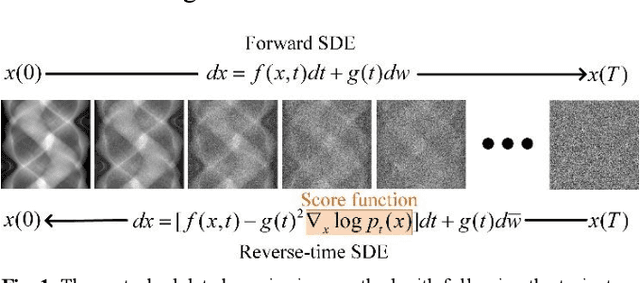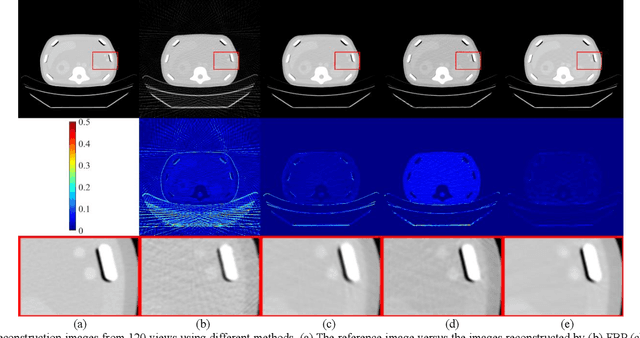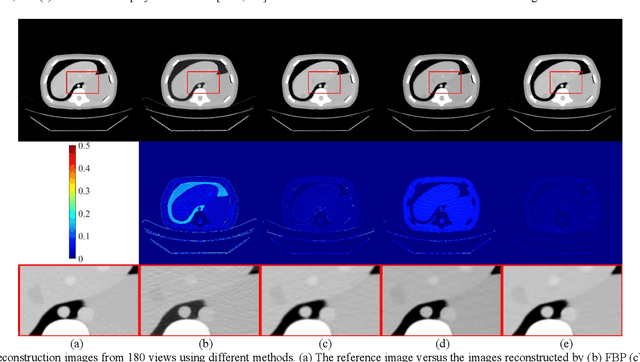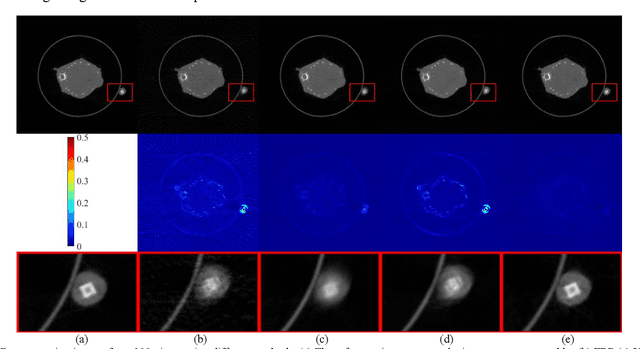Bing Guan
Generative Modeling in Sinogram Domain for Sparse-view CT Reconstruction
Nov 25, 2022



Abstract:The radiation dose in computed tomography (CT) examinations is harmful for patients but can be significantly reduced by intuitively decreasing the number of projection views. Reducing projection views usually leads to severe aliasing artifacts in reconstructed images. Previous deep learning (DL) techniques with sparse-view data require sparse-view/full-view CT image pairs to train the network with supervised manners. When the number of projection view changes, the DL network should be retrained with updated sparse-view/full-view CT image pairs. To relieve this limitation, we present a fully unsupervised score-based generative model in sinogram domain for sparse-view CT reconstruction. Specifically, we first train a score-based generative model on full-view sinogram data and use multi-channel strategy to form highdimensional tensor as the network input to capture their prior distribution. Then, at the inference stage, the stochastic differential equation (SDE) solver and data-consistency step were performed iteratively to achieve fullview projection. Filtered back-projection (FBP) algorithm was used to achieve the final image reconstruction. Qualitative and quantitative studies were implemented to evaluate the presented method with several CT data. Experimental results demonstrated that our method achieved comparable or better performance than the supervised learning counterparts.
Universal Generative Modeling for Calibration-free Parallel Mr Imaging
Jan 25, 2022



Abstract:The integration of compressed sensing and parallel imaging (CS-PI) provides a robust mechanism for accelerating MRI acquisitions. However, most such strategies require the explicit formation of either coil sensitivity profiles or a cross-coil correlation operator, and as a result reconstruction corresponds to solving a challenging bilinear optimization problem. In this work, we present an unsupervised deep learning framework for calibration-free parallel MRI, coined universal generative modeling for parallel imaging (UGM-PI). More precisely, we make use of the merits of both wavelet transform and the adaptive iteration strategy in a unified framework. We train a powerful noise conditional score network by forming wavelet tensor as the network input at the training phase. Experimental results on both physical phantom and in vivo datasets implied that the proposed method is comparable and even superior to state-of-the-art CS-PI reconstruction approaches.
 Add to Chrome
Add to Chrome Add to Firefox
Add to Firefox Add to Edge
Add to Edge